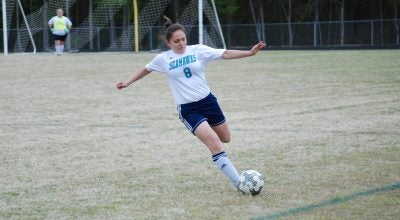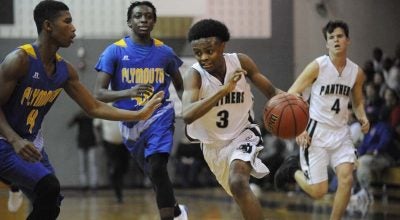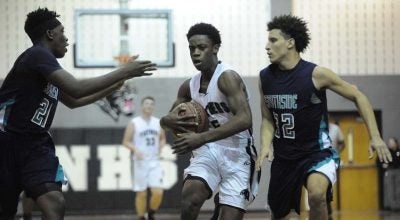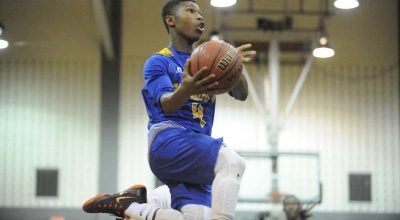A master craftsman
Published 4:38 pm Friday, December 23, 2011

Plymouth coach Robert Cody (right) gives a play to quarterback Sharmontez Ferebee during a game earlier this year. Cody was named the Washington Daily News Coach of the year for the second straight season. (WDN Photo/Brian Haines)
PLYMOUTH — Somebody forget to tell the Vikings it was a rebuilding year. There were plenty of reasons for Plymouth not to be good this season. The Vikings, who went 13-2 year ago, entered the 2011 season minus graduated WDN Offensive Player of the Year Ronnell Blount and lost eight starters on both offense and defense.
It didn’t matter.
Plymouth reloaded quicker than John Wayne and when the Vikings were done firing the result was an 11-2 record and their third straight conference championship and district crown. That effort also produced a second straight Washington Daily News Coach of the Year honor for Robert Cody, making it the seventh time he has received the honor.
Despite losing their entire backfield from a year ago, Cody restructured his team like a master craftsman as the Vikings went 11-2 and outscored opponents 600-214 with their only two losses of the year coming at the hands of fellow Four Rivers Conference champions Manteo.
Plymouth busted out of the gate this season by winnings its first eight games and at one point in the season earned a No. 4 ranking in the state amongst 1-A teams, which was an idea that Cody would have found far-fetched in August.
“At the beginning of the year I would have never had thought that,” Cody said. “I think we were picked to finish sixth or seven in the conference.”
Despite the preseason poll Cody’s confidence in his team never waivered.
“Every year is a new one. Every time you start you think you can do well,” Cody said. “Whether you’re a 90 golfer or a 100 golfer you feel like you can shoot a 70 when you tee it up. You never shoot that 70 but each time you start you feel like, ‘Today is the day!’”
Cody may not have ‘shot a 70’ this season but there were a lot of Friday’s that the Vikings finished way above par. The reason for that is that despite Cody’s 32 years at the helm for Plymouth he refuses to leave things to chance or take any shorts when it comes to teaching the game.
“The biggest challenge this year was that we had to slowly teach each position,” Cody said. “We had brand new offensive guards, brand new linebackers and defensive linemen and you just couldn’t overlook teaching one aspect of the game.
“You will find that, that happens. You’ll be thinking that maybe you don’t need to teach that defensive lineman as much as we usually do because he was here last year, but you do. You have to teach them all the same way.”
Repetition and continuity is key element in the success of Plymouth’s program and it starts down at the lower levels.
“We have a pretty good JV program and I think that being able to stay in the same offense and defense and working the fundamentals is important,” Cody said. “They develop pride from doing something and doing it well and then they continue to do it well.”
While stability and having the patience to reteach the same techniques and schemes each year are no doubt keys to building a successful team, a good coach also has to know when to fight the urge to be stubborn and give in to the realization that the play he drew up just won’t work with the team he fields.
“We went into the year thinking we could run the waggle pulling the left guard and after four weeks of working like heck on it we just couldn’t get it blocked,” Cody said. “You feel like a failure. In the wing-T the waggle is supposed to be the damn pass play and we couldn’t run it. … I ended up just going back the belly series … We put the waggle out there in the river along with the option play.”
Cody vividly remembers the last time his team ran the option as it cost him a game in 1998 and has been retired since. As for the waggle’s fate, whether or not the play resurfaces is up for speculation. However, one thing that can be counted on to comeback strong every year is the Plymouth, and that’s a direct result of its its head coach.





